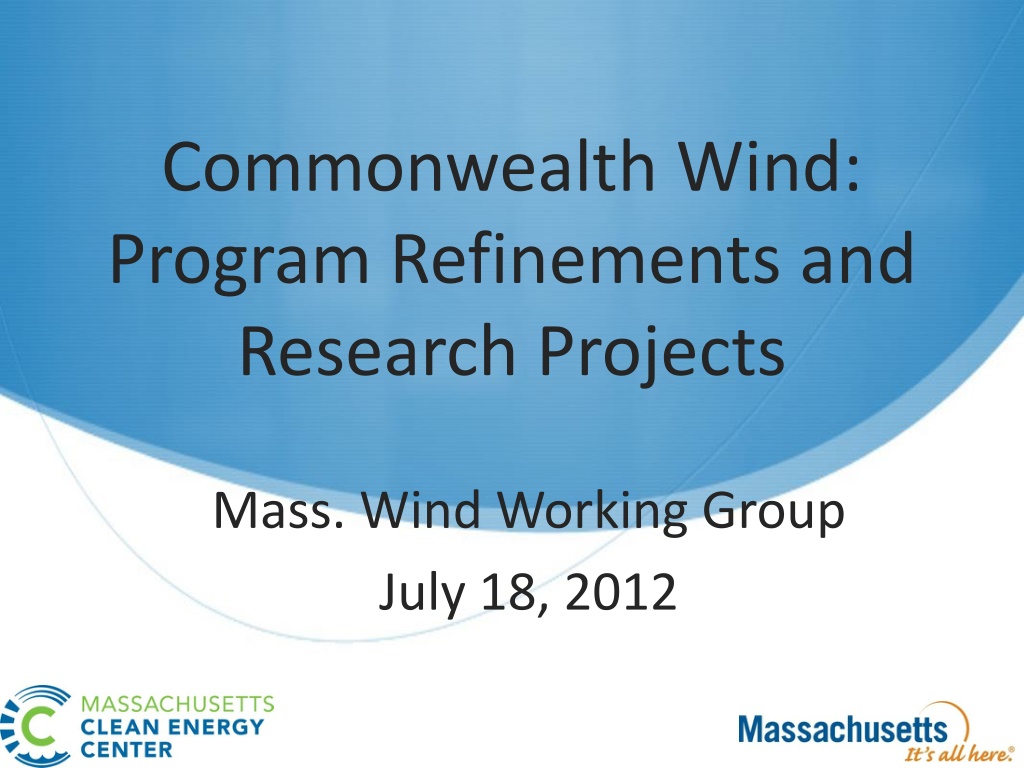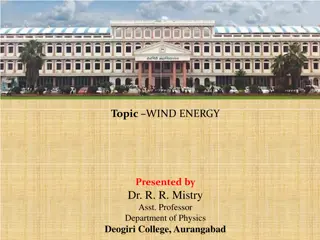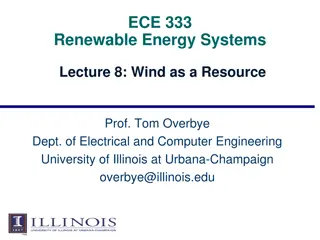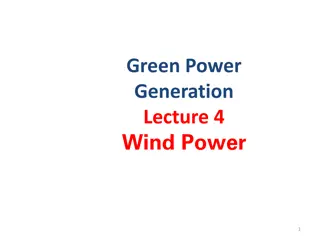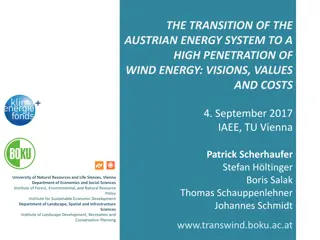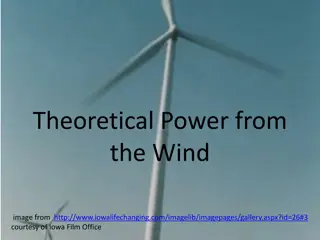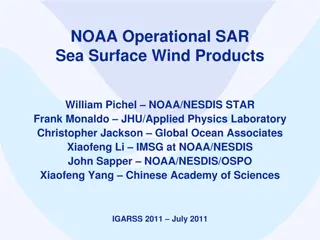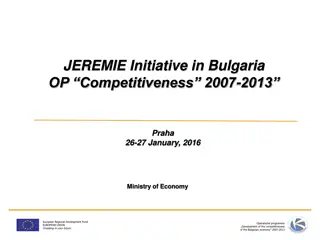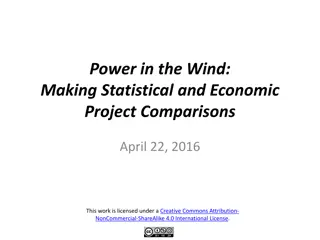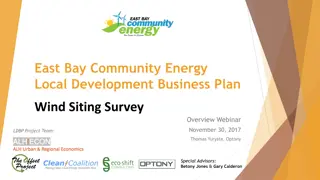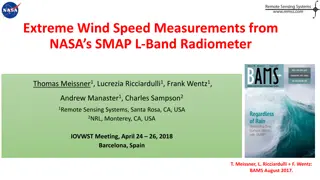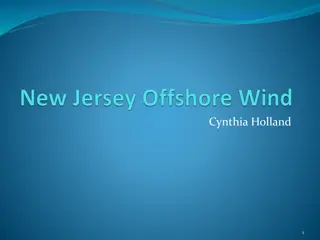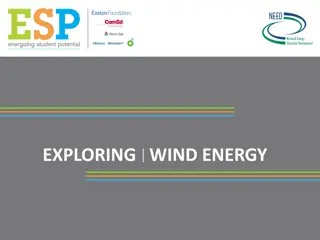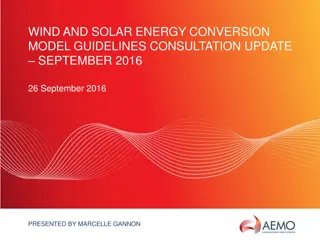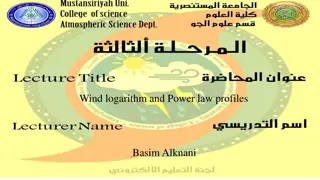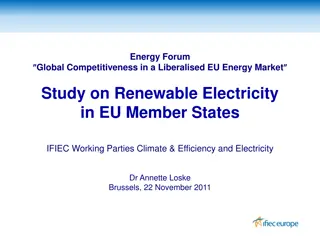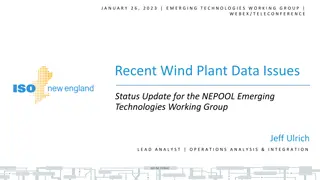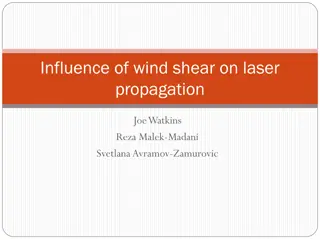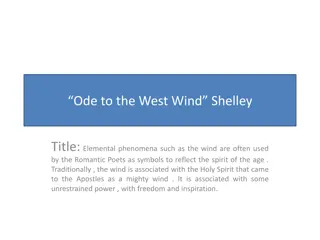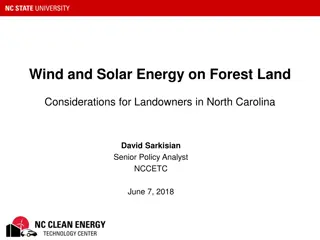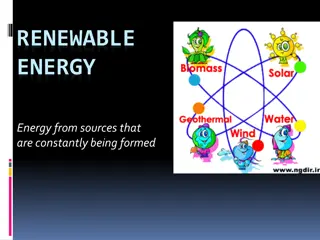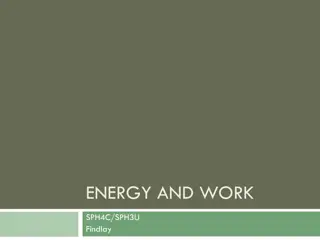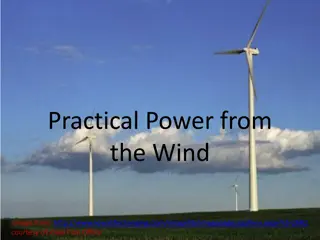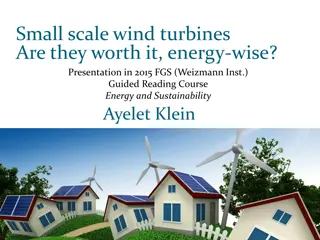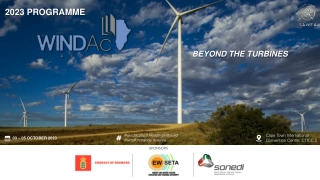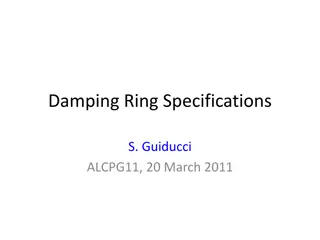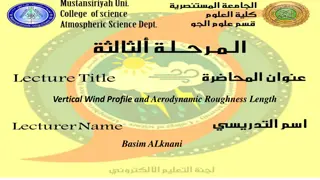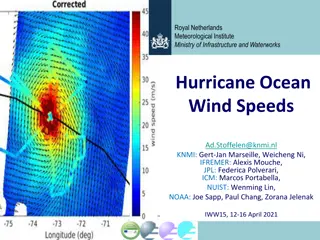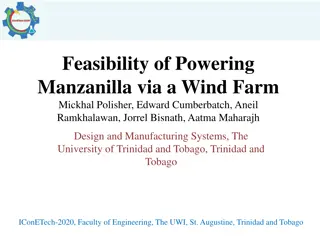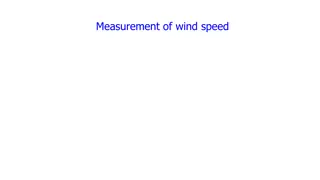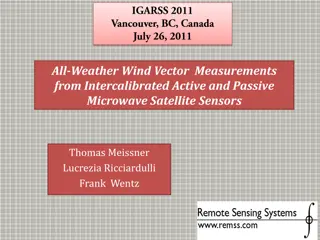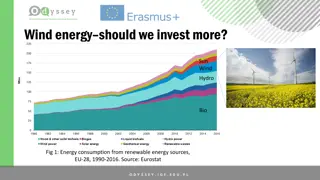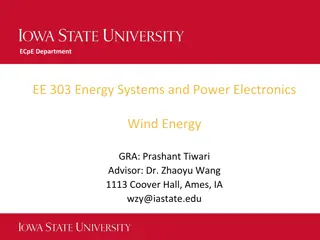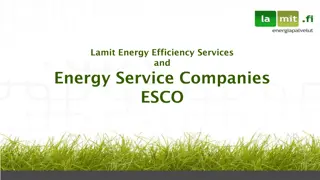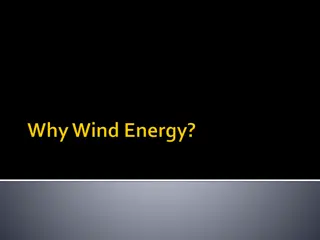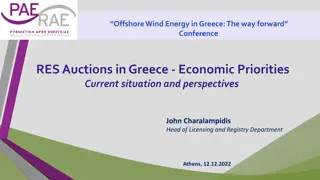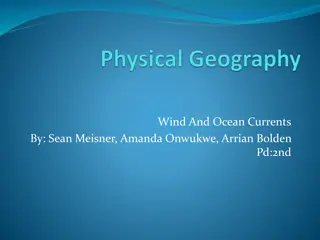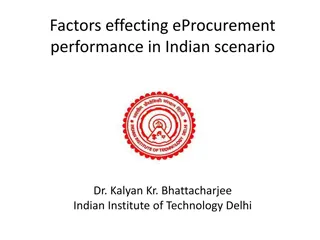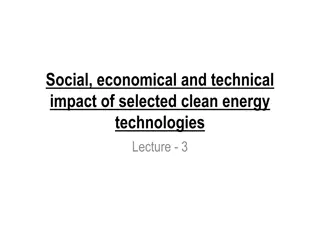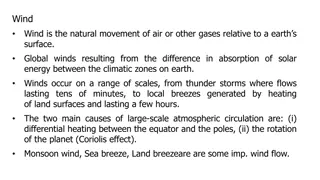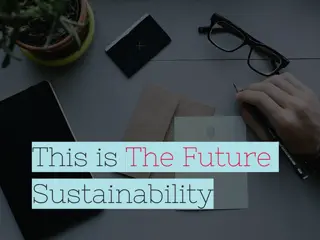Enhancing Wind Energy Program for Economic Competitiveness and Community Acceptance
Addressing challenges in wind project development to improve economic competitiveness and community acceptance. Program refinements focus on funding reallocation, stakeholder engagement, public education, and supporting various project scales. Revised program structure includes grants, feasibility studies, education services, and more to facilitate wind energy growth.
- Wind Energy
- Program Refinements
- Economic Competitiveness
- Community Acceptance
- Stakeholder Engagement
Download Presentation

Please find below an Image/Link to download the presentation.
The content on the website is provided AS IS for your information and personal use only. It may not be sold, licensed, or shared on other websites without obtaining consent from the author. Download presentation by click this link. If you encounter any issues during the download, it is possible that the publisher has removed the file from their server.
E N D
Presentation Transcript
Commonwealth Wind: Program Refinements and Research Projects Mass. Wind Working Group July 18, 2012
Installed Wind Generating Capacity 120 100 80 Capacity (MW) 60 Annual Installations 40 Current Year Pipeline Cumulative 20 0 Year 2
Wind Project Development Challenges 1. Economic competitiveness Competition with regional wind projects Competition with other renewable energy sources Expiration of federal PTC/ITC; uncertainty regarding renewal Siting and Community Acceptance No standardized siting rules to guide project reviews Strident opposition with conflicting messages, especially regarding health General lack of wind/energy literacy for public and decision-makers, Minimal public outreach/stakeholder engagement in early project development stages 2. 3
Program Refinements: Economic Competitiveness 1. Community scale projects Re-evaluate funding levels for design and construction to address expiration of federal incentives Commercial projects Monitor and support state policy developments 2. 4
Program Refinements to address: Siting and Community Acceptance - 1 1. Require stakeholder engagement and public education at all development stages Support use of facilitation services Support or provide wind energy 101 and 201 sessions Undertake comprehensive energy planning exercises in communities/regions Remove some program distinction between community scale and commercial projects Extend site assessment services to private, community scale projects Use the same solicitation for both types of projects at site assessment and feasibility study stages Providing additional funding for pre-construction acoustic studies 2. 3. 5
Revised Program Structure Design & Construction Grant Business Planning Grant Site Wind Monitoring Feasibility Study Acoustic Study 100+ kW Assessment Services Development Grants and Loans Education and Facilitation Services Legend Cmty. & Cmrcl. Community Only Commercial Only Small Only Construction Rebates < 100 kW
Program Refinements to address: Siting and Community Acceptance - 2 4. Provide information resources at MassCEC.com Environmental benefits Property values Acoustics Health Grid integration Others . . . Target MassCEC support to well-sited projects with good prospects for obtaining local approvals Employ rigorous analysis and conservative assumptions Employ solid public engagement and education processes 5. 7
Research Projects - 1 1. 2. Pre-construction acoustic study methodology done Property value study with regional focus in process MA focused/Smaller projects Residential transactions at multiple distances and periods Solicitation for projects needing to evaluate alternative grid upgrade solutions coming soon Falmouth Wind Turbine Options Process in process Facilitation and technical support in response to request from Town Kingston acoustic monitoring Technical support in response to request from developer Results will inform developer, Town boards, state officials and general public, but do not constitute a compliance test 3. 4. 5. 8
Research Projects - 2 6. Research Study on Wind Turbine Acoustics Collaboration between MassDEP and MassCEC Objectives Measure the level and quality of sound emissions from a variety of operating wind projects in Massachusetts Seek to understand and quantify the influence of variables including turbine type and size, wind conditions, topography and distance This is a research study, not a compliance test Measurements and analysis will be done by a consulting group selected by MassDEP and MassCEC RFP to be released soon 9
Thank You . . . MassCEC Commonwealth Wind Team Nils Bolgen Peter McPhee Leigh Cameron Tyler Studds Seth Federspiel NBolgen@masscec.com PMcPhee@masscec.com LCameron@masscec.com TStudds@masscec.com SFederspiel@masscec.com 617-315-9311 617-315-9343 617-315-9315 617-315-9378 www.masscec.com 10
